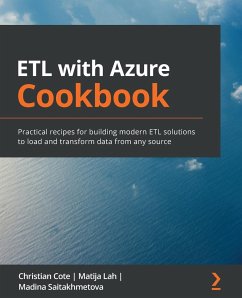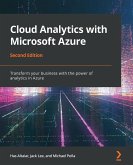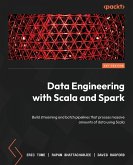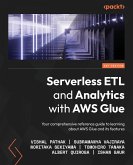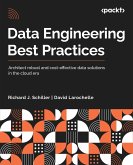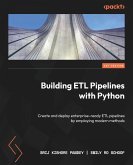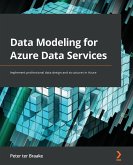Explore the latest Azure ETL techniques both on-premises and in the cloud using Azure services such as SQL Server Integration Services (SSIS), Azure Data Factory, and Azure Databricks Key FeaturesUnderstand the key components of an ETL solution using Azure Integration Services Discover the common and not-so-common challenges faced while creating modern and scalable ETL solutions Program and extend your packages to develop efficient data integration and data transformation solutions Book Description ETL is one of the most common and tedious procedures for moving and processing data from one database to another. With the help of this book, you will be able to speed up the process by designing effective ETL solutions using the Azure services available for handling and transforming any data to suit your requirements. With this cookbook, you'll become well versed in all the features of SQL Server Integration Services (SSIS) to perform data migration and ETL tasks that integrate with Azure. You'll learn how to transform data in Azure and understand how legacy systems perform ETL on-premises using SSIS. Later chapters will get you up to speed with connecting and retrieving data from SQL Server 2019 Big Data Clusters, and even show you how to extend and customize the SSIS toolbox using custom-developed tasks and transforms. This ETL book also contains practical recipes for moving and transforming data with Azure services, such as Data Factory and Azure Databricks, and lets you explore various options for migrating SSIS packages to Azure. Toward the end, you'll find out how to profile data in the cloud and automate service creation with Business Intelligence Markup Language (BIML). By the end of this book, you'll have developed the skills you need to create and automate ETL solutions on-premises as well as in Azure. What you will learnExplore ETL and how it is different from ELT Move and transform various data sources with Azure ETL and ELT services Use SSIS 2019 with Azure HDInsight clusters Discover how to query SQL Server 2019 Big Data Clusters hosted in Azure Migrate SSIS solutions to Azure and solve key challenges associated with it Understand why data profiling is crucial and how to implement it in Azure Databricks Get to grips with BIML and learn how it applies to SSIS and Azure Data Factory solutions Who this book is for ¿This book is for data warehouse architects, ETL developers, or anyone who wants to build scalable ETL applications in Azure. Those looking to extend their existing on-premise ETL applications to use big data and a variety of Azure services or others interested in migrating existing on-premise solutions to the Azure cloud platform will also find the book useful. Familiarity with SQL Server services is necessary to get the most out of this book.
Hinweis: Dieser Artikel kann nur an eine deutsche Lieferadresse ausgeliefert werden.
Hinweis: Dieser Artikel kann nur an eine deutsche Lieferadresse ausgeliefert werden.

